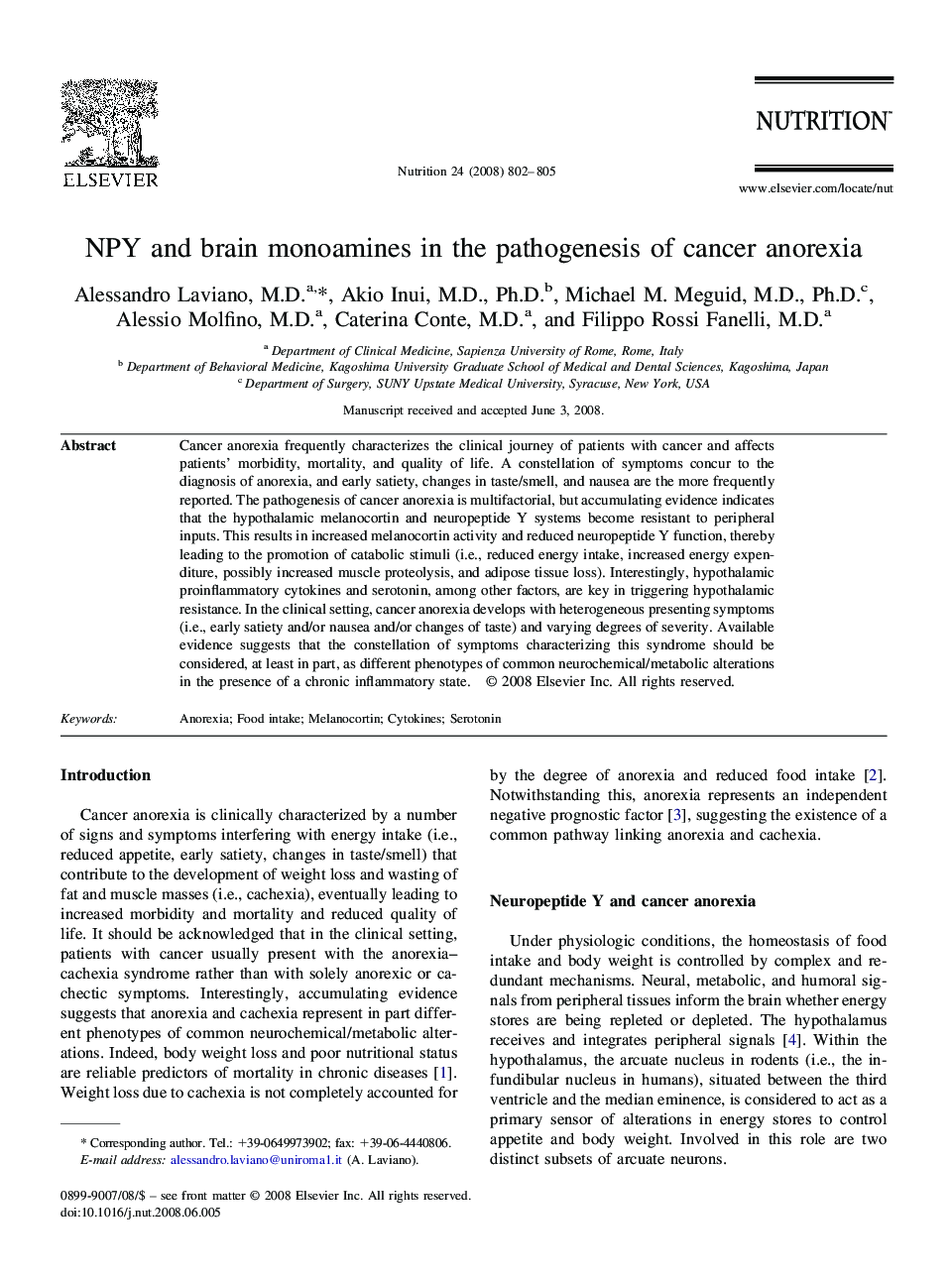| کد مقاله | کد نشریه | سال انتشار | مقاله انگلیسی | نسخه تمام متن |
|---|---|---|---|---|
| 6090645 | 1208617 | 2008 | 4 صفحه PDF | دانلود رایگان |
عنوان انگلیسی مقاله ISI
NPY and brain monoamines in the pathogenesis of cancer anorexia
دانلود مقاله + سفارش ترجمه
دانلود مقاله ISI انگلیسی
رایگان برای ایرانیان
کلمات کلیدی
موضوعات مرتبط
علوم پزشکی و سلامت
پزشکی و دندانپزشکی
غدد درون ریز، دیابت و متابولیسم
پیش نمایش صفحه اول مقاله

چکیده انگلیسی
Cancer anorexia frequently characterizes the clinical journey of patients with cancer and affects patients' morbidity, mortality, and quality of life. A constellation of symptoms concur to the diagnosis of anorexia, and early satiety, changes in taste/smell, and nausea are the more frequently reported. The pathogenesis of cancer anorexia is multifactorial, but accumulating evidence indicates that the hypothalamic melanocortin and neuropeptide Y systems become resistant to peripheral inputs. This results in increased melanocortin activity and reduced neuropeptide Y function, thereby leading to the promotion of catabolic stimuli (i.e., reduced energy intake, increased energy expenditure, possibly increased muscle proteolysis, and adipose tissue loss). Interestingly, hypothalamic proinflammatory cytokines and serotonin, among other factors, are key in triggering hypothalamic resistance. In the clinical setting, cancer anorexia develops with heterogeneous presenting symptoms (i.e., early satiety and/or nausea and/or changes of taste) and varying degrees of severity. Available evidence suggests that the constellation of symptoms characterizing this syndrome should be considered, at least in part, as different phenotypes of common neurochemical/metabolic alterations in the presence of a chronic inflammatory state.
ناشر
Database: Elsevier - ScienceDirect (ساینس دایرکت)
Journal: Nutrition - Volume 24, Issue 9, September 2008, Pages 802-805
Journal: Nutrition - Volume 24, Issue 9, September 2008, Pages 802-805
نویسندگان
Alessandro M.D., Akio M.D., Ph.D., Michael M. M.D., Ph.D., Alessio M.D., Caterina M.D., Filippo M.D.,